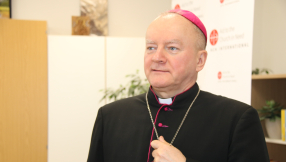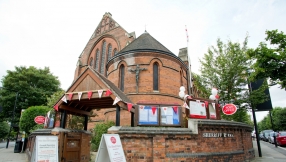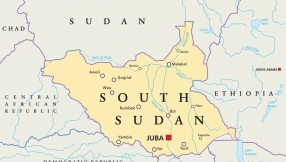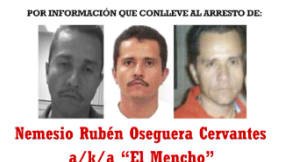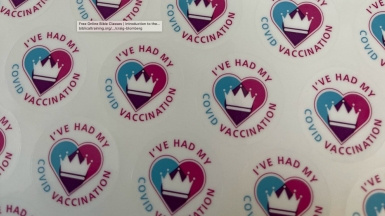
Back in April more than 1,200 church leaders wrote to Prime Minister Boris Johnson urging him not to introduce Covid vaccine certificates because they were an "unethical form of coercion."
And the UK equality watchdog similarly warned that such passports could create a "two-tier society."
The Church leaders who signed the April letter said that regardless of the government's final decision, they would not refuse entry to anyone without a vaccine passport or similar "proof of health."
It was an issue that seemed to unite many on both sides of the House of Commons, with Labour leader Sir Keir Starmer telling the BBC he was concerned vaccine passports would lead to discrimination against the unvaccinated - although he supported them at large-scale sporting events - while Tory MP Steve Baker called them a "ghastly trap" that would unfairly penalise those who were advised not to have a vaccine.
Thankfully in September, Westminster ditched the plans for England with Health Secretary Sajid Javid personally "never liking the idea of people showing their papers just to do an everyday activity," he told the UK's Andrew Marr Show at the time.
Over in Australia, where I am, our leaders unfortunately chose not to follow this advice.
Despite considerably lower death rates and infection rates compared to the UK with only 1,448 people having lost their lives to Covid-19 compared to the death toll of 139,000 across the UK since the pandemic began, my state of New South Wales has initiated vaccine passports.
We are not allowed to sit down at a restaurant, go to the pub, visit hair salons or someone's home unless we are fully vaccinated and can prove this with a digital certificate. Employment prospects for the unvaccinated are also bleak, with most workplaces mandating you have to have received a Covid-19 vaccination to be able to go to work.
For a week we were even not allowed to visit a place of worship, but thankfully after pressure from faith leaders, the NSW government agreed that once the state had reached 80% double vaccination this would be permitted.
What made the whole thing absolutely farcical was that our church for most weeks during the pandemic was available to anyone vaccinated or not. It was a place where anyone regardless of their health choices could come and worship God as one, as it should be.
But overnight the rule changed and suddenly we were forced to segregate our society despite comparatively low case numbers compared to the rest of the world.
So what did that change mean for us?
It meant regular attenders who faithfully served and gave for many years now felt they could not go to a place that had been their spiritual home for such a long time.
It means that our Church, that just wants to honour God and love his people, became a target and was put in a position it should never have been put in.
People that served on our door did not come to church that Sunday because they feared conflict with anti-vaccination groups in our region that wanted to target churches just to cause trouble.If we did our Christian duty and let the unvaccinated in, we were facing fines of up to $5,000. Yet if we refused these groups entry, they could cause us trouble. We became a target.
Fortunately no trouble came our way but lower numbers due to forced segregation meant for a noticeably gloomy feel.
And it has changed the fabric of our church because members of our community are not sure if we can even get together or who they can invite to their own homes.
If segregation has been wrong in the past, why is it right today?
Being unvaccinated does not mean you are sick and if people were sick we know by now what to do - stay home!
In the end we can get a vaccine but we can still catch the virus and spread it. I believe that limiting our movements and knowing when to isolate is the key to stopping the spread, and that it's pretty much common sense to stay home if you're not feeling well.
And likewise, if you don't feel safe in public spaces, you are welcome to stay at home. That is the power of choice and ultimately it is the power of choice that determines how we connect and move with God.
It is personal choice that must be protected if we are to be the people God has called us to be.
Ben Kruzins is a Pastor of The Hub Baptist Church in regional New South Wales, Australia. He has written for The Canberra Times and The Sydney Morning Herald.










